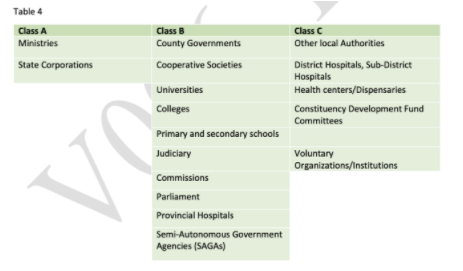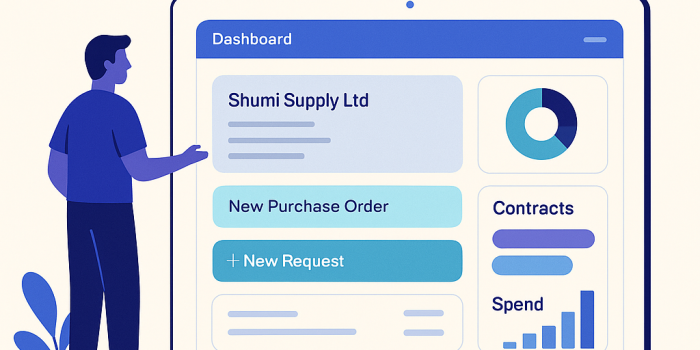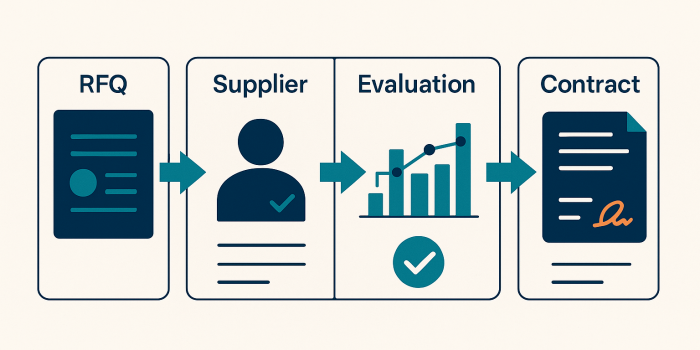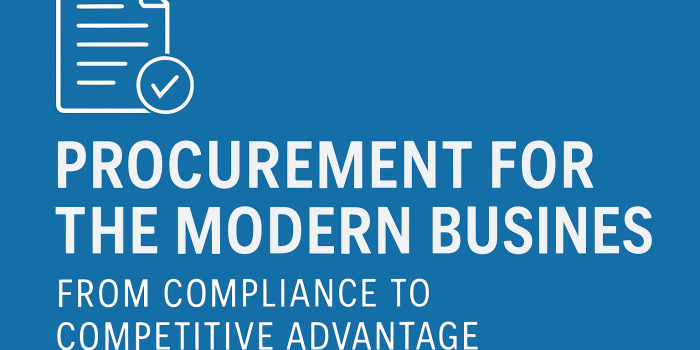Kenya’s Public Procurement – Key Actors in the Ecosystem
No matter how small or how young your business is, there are many opportunities for you in Kenya’s public procurement
Public Procurement Regulatory Authority (PPRA)
Kenya’s Public Procurement Regulatory Authority (PPRA) is a state corporation that is responsible for the implementation of the Public Procurement and Disposal Act (PPDA), 2005 and its attendant Regulations. It is responsible for ensuring that public procurement happens in an open, fair, transparent and competitive manner.
The Authority has an online tenders portal that provides information about procuring entities, suppliers, tender notices and contracts that have been awarded. They also have a section on its website that provides suppliers with information about market prices, which is helpful in giving you an idea of how to cost your bid.
Further, the PPRA has developed Standard Tender Documents on different procurement categories (i.e., goods, works and services). All public entities use these standard tender documents to purchase goods, works and services. It is good to be familiar with tender documents from each category.
Official website – www.ppra.go.ke
Public Procurement Administrative Review Board (PPARB)
The PPARB is a central independent procurement appeals review board that was set up to review, hear and determine tendering and asset disposal disputes. Basically, its main function is to receive and judge applications for administrative review from persons who claim to have suffered or are at risk suffering loss or damage when a procuring entity fails to follow procurement laws.
Officially, the Board’s functions are described as follows:
- Reviewing, hearing and determining tendering and asset disposal disputes; and
- To perform any other function conferred to the Review Board by the Act, Regulations or any other written law
The Board is made up of six members nominated from various professional associations and three other members appointed by the Cabinet Secretary for Finance.
Official website – http://ppra.go.ke/pparb/
The Kenya Institute of Supplies Management (KISM)
KISM is a national body for professionals in the practice of procurement and supply chain management in the country. It was first established in 1976 as a membership organization then later got elevated to a national body under The Supplies Practitioners Management Act, 2007.
It is legally mandated to oversee registration, regulation, training, promotion of standards and handling of disciplinary issues of professionals in procurement and supply chain management in Kenya, in both the private and public sectors.
The body’s core functions are officially described as:
- To establish, monitor, improve and publish standards of SCM professionals as well as safeguard their interests
- Promote research in critical areas of PSCM and encourage and provide input in the publication of books, periodicals and journals
- Prescribe and regulate syllabuses for PSCM courses, and prepare the appropriate examinations
- Promote the international recognition of the Institute
- Advise the Kenya Institute of Supplies Examinations Board on the formulation of examination standards and policies
Official website – https://kism.or.ke/
The National Treasury (AGPO Secretariat)
The AGPO Secretariat is based in the National Treasury, and is responsible for the implementation of the preference and reservation scheme under the Act.
The aim of the AGPO program is to facilitate the enterprises owned by women, youth and persons with disabilities to be able to participate in Government tenders and Kenya’s public procurement. The secretariat does this through the following functions:
- Registers, prequalifies and certifies target groups (e.g. women, youth or persons with disabilities) provided for in the Act.
- Trains and builds the capacity of the above-mentioned target groups.
- Provides technical and advisory assistance to procuring entities in the implementation of the preferences and reservations under the Act.
- Monitors and evaluates the implementation of the preferences and reservations under the Act.
Official website – https://agpo.go.ke/
Public Procuring Entities
Procuring entities are all public entities engaged in procurement, including central government ministries, local governments, state corporations, universities, public schools and publicly maintained or assisted colleges or other educational institutions, co-operative societies and various other prescribed entities.
These entities are classified as:

These public entities offer the Kenyan public many different types of services and are major consumers of works, goods and services. This means they have requirements that need to be supplied by numerous individuals, sole proprietorships, partnerships and major corporations from within and outside Kenya.
No matter how small or how young your business is, there are many opportunities for you in Kenya’s public procurement market. It is important that you try and take advantage of opportunities in this huge market.
Which other actors or entities do you think are important for potential bidders to know about? Leave a comment below and we’ll add it to the list!
This article is part of the Public Procurement Guidelines for Bidders series








